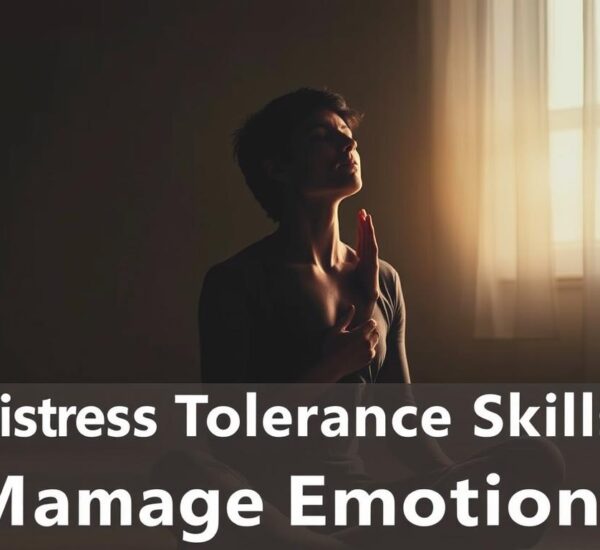Do you feel overwhelmed by anxiety? You’re not alone. Millions of people worldwide face anxiety symptoms that make daily tasks hard.
It’s key to understand and manage anxiety to take back control of your life. Dr. Daniel G. Amen’s book, “Conquer Worry and Anxiety: The Secret to Mastering Your Mind,” provides valuable insights. It helps you overcome anxiety and live a happier, healthier life.
We can manage and beat debilitating anxiety with the right techniques and support. This article will look at how anxiety affects daily life. We’ll also discuss effective anxiety treatment options.
Key Takeaways
- Understand the impact of anxiety on daily life.
- Learn effective strategies for managing anxiety.
- Discover the importance of seeking help for anxiety.
- Explore the benefits of Dr. Daniel G. Amen’s approach to overcoming anxiety.
- Achieve a happier, healthier life by conquering anxiety.
Understanding Anxiety: What It Is and How It Affects You
Anxiety is a complex emotional state that affects millions worldwide. It impacts their daily lives deeply. It’s a natural response to threats or stressors, causing physical and mental reactions. Knowing about anxiety helps in managing it better.
Anxiety acts as a protective mechanism, preparing us to face or flee danger. But, it can become distressing when there’s no real threat. The impact of anxiety on mental health is significant, affecting life in many ways, from personal to professional.
The Science Behind Anxiety
Anxiety is linked to the brain’s stress response, involving neurotransmitters, hormones, and brain regions. The amygdala, a small almond-shaped structure, is key in detecting threats and triggering anxiety. Knowing the anxiety causes helps in finding effective solutions.
The body’s “fight or flight” response is central to anxiety. It prepares the body for danger by increasing heart rate and energy. But, it can cause discomfort and impairment when there’s no danger.
Common Anxiety Disorders
Anxiety comes in many forms, each with its own traits. Common ones include Generalized Anxiety Disorder (GAD), characterized by constant worry; Panic Disorder, with recurring panic attacks; and Social Anxiety Disorder, involving fear of social situations. Recognizing these disorders is key to finding anxiety relief.
- Generalized Anxiety Disorder (GAD)
- Panic Disorder
- Social Anxiety Disorder
- Specific Phobias
Symptoms You Should Know
Anxiety symptoms vary, from psychological signs like worry and fear to physical signs like tremors and rapid heartbeat. Cognitive symptoms, such as trouble concentrating and making decisions, are also common. Knowing these symptoms helps in early identification and treatment.
Understanding anxiety, including its causes, symptoms, and effects, is the first step towards managing it. There are many ways to achieve a more balanced and less anxious life, from self-help to professional therapy.
Identifying the Triggers of Your Anxiety
Knowing what makes us anxious is key to handling it. By figuring out what causes our anxiety, we can live better and make choices that help us feel better.
Everyday Stressors
Work stress, money worries, and relationship problems are common anxiety triggers. Spotting these stressors is the first step to managing them. Keeping a stress journal can help you see when and why you feel anxious.
Environmental Factors
Our surroundings can also trigger anxiety. Places that are too crowded, loud, or certain social settings can make us feel anxious. Knowing these triggers helps us plan or steer clear of them.
Personal Life Events
Big life events, good or bad, can also cause anxiety. Moving, changing jobs, or losing someone close can make us feel more anxious. It’s important to see how these events affect our mental health and seek anxiety support and anxiety help.
| Trigger Type | Examples | Coping Strategies |
|---|---|---|
| Everyday Stressors | Work pressures, financial worries, relationship issues | Stress journaling, time management, seeking anxiety therapy |
| Environmental Factors | Crowded spaces, loud noises, certain social situations | Avoidance, preparation, mindfulness techniques |
| Personal Life Events | Moving, job changes, loss of a loved one | Seeking anxiety support, practicing self-care, staying connected with loved ones |
By knowing and tackling our personal anxiety triggers, we can start managing our anxiety. There are many ways to find relief and take back control of our lives, from anxiety therapy to support groups and personal strategies.
Practical Coping Strategies to Manage Anxiety
We can fight anxiety by using simple yet effective methods every day. By adding these habits to our daily life, we can better handle anxiety.

Deep Breathing Techniques
Deep breathing is a strong tool for anxiety relief. It means taking slow, deep breaths through your nose. Hold them for a few seconds, then exhale slowly through your mouth. This calms your nervous system and lowers stress.
To do deep breathing, find a quiet spot to sit or lie down. Close your eyes and focus on your breath. Breathe in deeply through your nose, filling your lungs. Hold for a count of four, then exhale slowly through your mouth. Empty your lungs and hold again for a count of four. Keep doing this for a few minutes.
Mindfulness and Meditation
Mindfulness and meditation help you stay in the moment and reduce worries. Mindfulness is about focusing on the present without judgment. Meditation often involves a mantra, breath, or visualization to reach calm.
Regular mindfulness and meditation can help manage anxiety by lowering stress and improving emotional control. Begin with short sessions, even just a few minutes a day. As you get more comfortable, increase the time.
Physical Activity and Exercise
Doing physical activity and exercise is also great for managing anxiety. Exercise releases endorphins, which boost your mood and reduce stress. Regular physical activity can improve your mood and lower anxiety.
Choose an activity you like, like walking, running, swimming, or dancing. Make it a daily habit. Even a short walk during lunch can help a lot.
The Importance of a Support System
Having a strong support system is key to managing anxiety. When we have people we trust, it’s easier to face anxiety’s challenges. A support system gives us emotional support, practical help, and a sense of belonging.
Friends and Family: Your First Line of Support
Friends and family are often our first support. They offer emotional support, help with daily tasks, and share a different view. It’s important to talk openly about our anxiety so they can support us better. This strengthens our relationships and builds a strong support network.
Professional Help: When to Seek Therapy
While friends and family are vital, sometimes we need professional help. If anxiety affects our daily life, it’s time to seek professional therapy. Therapy gives us tools to manage anxiety better. Seeking help is a sign of strength, not weakness.
Therapies like cognitive-behavioral therapy (CBT) are very effective. It’s important to find a therapist who understands us and makes us feel comfortable.
Support Groups: Finding Community
Support groups offer a community that understands us. They provide a safe space to share, get support, and learn from others. Support groups can be found locally or online, making it easy to connect with others facing similar challenges.
Here’s a summary of the different support options available:
| Support Type | Description | Benefits |
|---|---|---|
| Friends and Family | Emotional support, practical help | Stronger relationships, immediate support |
| Professional Therapy | Strategies and tools for managing anxiety | Effective anxiety management, personalized guidance |
| Support Groups | Community support, shared experiences | Feeling less isolated, learning from others |
Building a support system is a journey. It’s okay to take it one step at a time.
Lifestyle Changes that Help Combat Anxiety
We can fight anxiety by making simple lifestyle changes. Changing our daily habits can greatly improve our mental health. By making a few key adjustments, we can manage anxiety better and live a happier life.
Healthy Eating for a Balanced Mind
Eating well is key to keeping our minds healthy. Eating foods rich in nutrients can help reduce anxiety. Foods like salmon and walnuts, which are high in omega-3 fatty acids, are very helpful. Also, eating whole grains and vegetables can help keep our mood steady.
It’s also important to watch out for foods that can make anxiety worse. Keeping a food diary can help find out which foods are troublemakers.
Sleep Hygiene Tips for Better Rest
Good sleep is vital for managing anxiety. Having a regular sleep schedule and a calming bedtime routine can improve sleep. It’s best to avoid screens before bed because the blue light they give off can mess with our sleep cycle.
Also, making your bedroom a sleep haven, like keeping it cool, dark, and quiet, can help. Avoiding caffeine and heavy meals before bed can also help you sleep better.
Reducing Caffeine and Alcohol Intake
Caffeine and alcohol can both affect our anxiety levels. While caffeine can make us feel alert, too much can make us jittery and anxious. Alcohol might seem to calm us down at first, but it can actually make anxiety worse over time.
Being careful with how much we drink and gradually cutting back can help. Choosing decaf or half-caf drinks and finding other ways to relax can be good. If you drink alcohol, do it in small amounts and know how it affects you.
Alternative Treatments You Might Consider
As we continue our journey to conquer anxiety, it’s essential to explore alternative treatments. These can provide additional relief. While traditional methods are effective for many, others may find that complementary therapies help them achieve better anxiety management.

Aromatherapy and Essential Oils
Aromatherapy uses essential oils from plants to promote relaxation and reduce anxiety symptoms. Certain scents, like lavender and chamomile, have a calming effect. They can offer anxiety relief. To use aromatherapy, you can use a diffuser, apply diluted essential oils to your skin, or inhale them directly.
Herbal Supplements for Anxiety Relief
Some people find herbal supplements helpful in managing their anxiety. Popular options include passionflower, kava, and ashwagandha. But, it’s important to talk to a healthcare professional before adding any supplements. They can interact with medications or have side effects. When used correctly, certain herbal supplements can be a valuable addition to an anxiety treatment plan.
Yoga and Its Benefits for Mental Health
Yoga combines physical postures, breathing techniques, and meditation to promote well-being. Regular yoga practice has been shown to reduce anxiety symptoms. It decreases stress hormones and promotes relaxation. By incorporating yoga into your lifestyle, you can develop a powerful tool for anxiety management and improve your overall mental health.
Using Technology to Manage Anxiety
The digital world can be stressful, but it also helps us manage anxiety. It offers new ways to deal with anxiety in our busy lives.
Technology is changing how we fight anxiety. It includes apps for mindfulness and online therapy. These tools help us take care of our mental health.
Apps for Mindfulness and Stress Relief
Many apps help with mindfulness and stress. They offer meditation, breathing exercises, and mood tracking. Some top apps are:
- Headspace: Known for its personalized meditation sessions.
- Calm: Offers a wide range of guided meditations and sleep stories.
- Moodfit: Allows users to track their mood and provides strategies for managing stress.
Online Therapy Options
Online therapy is a convenient way to get help for anxiety. It connects you with licensed therapists for support.
Online therapy has many benefits:
- Flexible scheduling.
- Comfort of sessions from home.
- Access to more therapists.
Platforms like BetterHelp and Talkspace offer messaging, voice, and video calls.
The Pros and Cons of Social Media Use
Social media can affect anxiety in two ways. It helps us connect and share, but too much can make us feel bad about ourselves.
To use social media wisely, we should:
- Limit screen time.
- Follow positive accounts.
- Do things offline to stay balanced.
By being smart about social media, we can avoid making anxiety worse.
In summary, technology gives us many tools to manage anxiety. Apps, online therapy, and smart social media use can improve our mental health.
When Anxiety Becomes a Serious Issue
Anxiety can become a big problem, affecting both mental health and daily life. It’s important to know when it’s time to seek more help than just coping strategies.
Recognizing Severe Symptoms
Severe anxiety shows up in many ways. This includes panic attacks, intense fear, and avoiding things that make daily life hard. If you see constant worry, shaking, sweating, or trouble focusing, it’s time to get help.
These signs can make simple tasks hard. Spotting them early is key to managing anxiety well.
Crisis Management Resources
When anxiety gets too much, quick help is needed. Crisis hotlines and emergency services are there 24/7. They offer support and help when you need it most.
- National Suicide Prevention Lifeline: 1-800-273-TALK (8255)
- Crisis Text Line: Text HOME to 741741
These services are private and open to anyone in crisis. They provide a vital lifeline during tough times.
Long-Term Treatment Options
For dealing with severe anxiety long-term, many options exist. These include therapy, medication, and lifestyle changes. Therapy, like cognitive-behavioral therapy (CBT), teaches coping skills and tackles deep issues.
Medicine can also help manage symptoms, but only with a doctor’s advice. Adding these treatments to a healthy lifestyle can greatly improve anxiety management.
Building a Positive Mindset to Overcome Anxiety
Dealing with anxiety is tough, but having a positive mindset helps a lot. It’s key for managing anxiety. By using affirmations and positive thoughts, we can change how we see things and grow stronger.
Practicing Affirmations
Every day, saying positive affirmations can change our thoughts. It makes us more hopeful and helps with anxiety. This simple habit is great for our daily lives.
Achieving Milestones
Setting goals and reaching them boosts our confidence and drive. Breaking big goals into smaller steps helps us move forward. This way, we get closer to a happier, healthier life.
Staying on Track
Keeping up the fight against anxiety takes persistence and support. Using resources for anxiety help and staying focused on our well-being makes it easier. We face challenges with more confidence.



